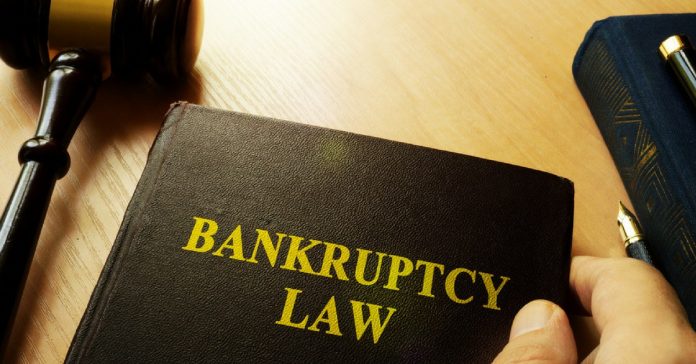This article is written by Abhikrishna Lal, pursuing Certificate Course in Insolvency and Bankruptcy Code from LawSikho.
Table of Contents
Introduction
The Insolvency and Bankruptcy Code, 2016 (“the Code”) was enacted to ensure the revival of the corporate debtor which is facilitated by a mechanism wherein the creditors are in control of the revival process.
The Corporate Insolvency Resolution Process (“CIRP”) under the Code enables the Committee of Creditors to make viable commercial decisions pertaining to the resolution process so as to revive the corporate debtor and to protect their investment or capital infusion.
Similarly, the Code was intended for corporate debtors who are unable to pay off their pending debts due to their financial incapacity and not to wilful defaulters who fraudulently try to evade their liability to pay debts despite having the financial capacity to do so.
In light of the same, this article intends to analyse the applicability of the moratorium period to proceedings of wilful defaulters under the Code.
Who are wilful defaulters?
The Reserve Bank of India in its Master Circular (RBI) defines wilful defaulters as a unit defaulting in meeting its payment or repayment obligations to the lender despite having the capacity to do so. The use of the term ‘unit’ comprises individuals, juristic persons, and other forms of business enterprises irrespective of whether they are incorporated or not. Further, the definition of a wilful defaulter is restricted with a proviso clause which states that wilful defaulters should be ascertained taking into consideration the track record of the borrower and not on an isolated basis. This was presumably added to ensure lenders do not frivolously enforce this mechanism at every instance of a default in payment.
Subsequently, the following acts if performed by a unit will lead to the unit being classified as a wilful defaulter as under the circular:
- Unit defaulting in meeting its payment obligations to the lender despite having the capacity to honour such obligations.
- Unit has diverted the funds obtained from the lender and has not used it for the specific purpose it was borrowed for.
- Unit has siphoned off the funds and the funds are not available with the unit in the form of other assets.
- Unit has disposed of the securities without the lender’s knowledge.
To ascertain wilful defaulters, an “Identification Committee” is to be constituted as per the RBI’s Master Circular wherein if the committee concludes that wilful default has occurred subsequent to examining evidence pertaining to the same, a show-cause notice is issued to the borrower company or their full-time director or promoter.
After considering the submissions of the alleged wilful defaulter, an order shall be issued recording the fact of wilful default and the reasons for the same. The order is final and binding after being reviewed by the Review Committee.
Once an entity is declared as a wilful defaulter, it attracts potential criminal proceedings and is unable to avail funds from any bank or financial institutions, unable to propose resolution plans and other similar measures.
Moratorium period under the Code
Subsequent to the commencement of the CIRP under the code, a moratorium period is imposed by the Adjudicating Authority wherein no proceedings can be instituted against the Corporate Debtor for such period. This period extends from the date of the order imposing moratorium period till the completion of CIRP. However, it can also be terminated when an order approving the resolution plan or liquidation of the corporate debtor is declared by the Adjudicating Authority. The moratorium period prohibits the following:
“(a) institution or continuation of pending suits against the corporate debtor including execution of any judgement, decree or order in any court of law, tribunal, arbitration panel or other authority;
(b) transferring, encumbering, alienating or disposing off by the corporate debtor any of its assets or any legal right or beneficial interest therein;
(c) any action to foreclose, recover or enforce any security interest created by the corporate debtor in respect of its property including any action under the Securitisation and Reconstruction of Financial Assets and Enforcement of Security Interest Act, 2002 (54 of 2002);
(d) the recovery of any property by an owner or lessor where such property is occupied by or in the possession of the corporate debtor.”
Whether a moratorium period extends to willful defaulter’s proceedings?
The Code seems to be an attractive way to evade liability to pay or repay debts for most wilful defaulters. This is supplemented by the fact that after initiation of CIRP, a moratorium period is imposed wherein no proceedings can be instituted against the corporate debtor. Wilful defaulters have tried to take advantage of Section 14 of the Code by stating that proceedings pursuant to being declared a wilful defaulter fall within the ambit of the moratorium period. However, the courts have held otherwise. Two such cases illustrating the same are elucidated below.
Applicability of moratorium period to proceedings against the director of a willfully defaulting company
In Ayan Mallick v. State Bank of India (W.P.O. No. 23 of 2021), the petitioners were the former directors of the company M/s A.K Power Industries Limited. The company had availed a loan from the State Bank of India and had not repaid the same on the stipulated dates upon which a forensic audit was conducted by the Bank on the affairs of the company.
Subsequently, the company was declared as a “No fraud Account’ upon which a one-time settlement was proposed by the company which the bank readily accepted. However, concurrently, the company was admitted into CIRP by the Calcutta High Court. The bank issued a show-cause notice to the company to state reasons as to why their names should not be forwarded to the wilful defaulter’s list of the RBI.
Pursuant to multiple back and forth communications between the parties, the Bank challenged the impugned notice of the bank. The issues raised in the writ petition were:
- Whether the borrowing company can be classified as a wilful defaulter after initiation of CIRP and whether related proceedings fall within the ambit of the moratorium period?
- Whether the directors of the borrowing company would be granted immunity vis-à-vis the willful defaulter proceedings after the commencement of CIRP?
Pertaining to the first issue, the Hon’ble Calcutta High Court held that declaring the borrowing company as a wilful defaulter and proceedings arising from the same would be detrimental and in conflict with the functioning of the Resolution Professional as prescribed within the code.
Thus, such proceedings would fall within the ambit of Section 14 and shall be barred during the moratorium period. However, pertaining to the second issue, the Court answered in the negative. As per Section 17 of the Code, the management of the affairs of the company is handed over to the Interim Resolution Professional after CIRP is initiated and the Board of Directors remains suspended.
Since the directors do not play any role in the functioning of the company after the commencement of CIRP as the powers of the directors are handed over to the IRP, it was held that publishing the names of the directors in the list of wilful defaulters would not affect CIRP.
Applicability of moratorium period to guarantor/whole-time director/promoter of willful defaulter company
In Gouri Prasad Goenka v. State Bank of India (WPO No. 171 of 2021), two show-cause notices were issued by the Deputy Manager of the State Bank of India to the petitioner as to why they should not be declared a wilful defaulter. The first notice against the petitioner was in the capacity of a guarantor and the second notice was the full-time director and promoter of Duncans Industries Ltd which were challenged by the petitioner. The issues raised were:
- Whether the notices served against the petitioner were valid and maintainable?
- Whether the petitioner could be declared as a wilful defaulter in both capacities and whether related proceedings will fall within the ambit of Section 14 of the Code?
The Hon’ble High Court of Kolkata held that the notices issued by the General Manager of the Bank were valid and maintainable as they were merely communications of the Wilful Defaulter Identification Committee’s orders and directions. Such a notice does not intrude into the jurisdiction of the committee under the RBI’s Master circular and is thus valid.
Further, pertaining to the second issue, the Court opined that apprehension of a prospective resolution plan does not absolve the liability of the full-time director or promoters who were managing the affairs of the company when the default occurred. It was held that wilful defaulter proceedings against the guarantor is an exception to the moratorium period under Section 14(3)(b) and whole-time directors/promoters/guarantors cannot escape the liability of wilful default on the basis of a prospective resolution plan. Thus, it was held that proceedings of wilful default against a guarantor/promoter/wholetime director are not within the ambit of the moratorium period.
Conclusion
The implementation of the Code was lauded by many as a saviour owing to the time-bound resolution of corporate debtors and the creditors in a controlled mechanism. However, there seems to be a lacuna as the true purpose of the Code i.e to revive corporate debtors is misused by wilful defaulters in order to escape their payment or repayment obligations to lenders.
This is further exemplified by such debtors being identified as wilful defaulters once the CIRP process is initiated and the moratorium period is imposed. Whilst the Hon’ble Courts have consistently pierced the corporate veil to unveil the directors or promoters or guarantors indulging in such unscrupulous measures and exempted them from moratorium period for related proceedings under the Identification committee; the corporate debtor still undergoes CIRP due to the reason that such acts would interfere with the functioning of the Interim Resolution Professional.
This creates a loophole whereas the corporate debtor is still undergoing CIRP and possibly liquidation if CIRP fails, and paves a path for the creditor to incur losses. Hence, a deafening call needs to be made for concerted efforts and more stringent measures to be implemented under the Code to restrict wilful defaulters under the Code completely.
Students of Lawsikho courses regularly produce writing assignments and work on practical exercises as a part of their coursework and develop themselves in real-life practical skills.
LawSikho has created a telegram group for exchanging legal knowledge, referrals, and various opportunities. You can click on this link and join:
 Serato DJ Crack 2025Serato DJ PRO Crack
Serato DJ Crack 2025Serato DJ PRO Crack











 Allow notifications
Allow notifications


